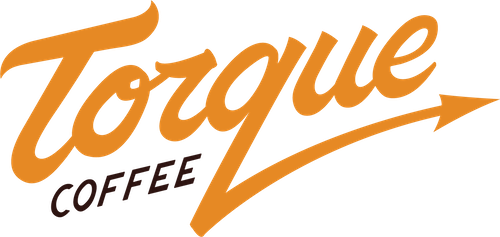CARBON NEUTRAL
We offset any carbon emission from this already low energy production process.
• Production of these mailers is solar-powered and uses no water, acids or bleaches. It's also 'zero waste' because all off-cuts can be put 'back in to the pot' and recycled.
1
/
of
1
Las Lajas, Perla Negra Honey - Costa Rica
Las Lajas, Perla Negra Honey - Costa Rica
4.5 / 5.0
(2) 2 total reviews
 Tastes like: Mission Fig, Pineapple, Black Cherry
Tastes like: Mission Fig, Pineapple, Black Cherry
 Medium Brown
Medium Brown
 Mucilage Dried (Honey)
Mucilage Dried (Honey)
 Syrupy and Modern
Syrupy and Modern
Regular price
$23.37 USD
Regular price
Sale price
$23.37 USD
Unit price
/
per
Shipping calculated at checkout.
Couldn't load pickup availability
Black Honey: This contains 100% of mucilage. Its dehydration process is slower, allowing an intense sweetness and generating fruit flavors, with an incredible acidity.
Beneficio Las Lajas ranks as one of the most progressive, high-quality coffee mills in all of Costa Rica. Francisca Cubillo and Oscar Chacón are the third generation of coffee producers in Costa Rica and the first once to process their own coffee. Las Lajas is one of the few farms in Costa Rica growing Certified Organic coffee.
Las Lajas is located in Sabanilla de Alejela Costa Rica near the base of Poas Volcano. The west Central Valley is the location of some of the best coffee in Costa Rica. Francisca and Oscar Chacon are third generation coffee farmers since 1840. When Oascar’s father passed away he inherited 5 hectares at the age of 18. He and his mom kept the legacy alive. In 1997 Fransisca and Oscar were married. Fransisca attended University in Costa Rica for an agriculture degree in coffee.
In 2009 a massive country-wide earthquake caused widespread power outages and destruction right at the peak of their coffee harvest. Francisca had a crazy idea to try and dry their coffee with the cherry intact since that is how they do it in parts of Africa where there isn't electricity and running water in the dry season. So they spread their coffee cherries out on patios, flat roofs and even hastily built camas africanas (african style raised beds) and dried their coffee slowly in the sun. The results were this crazy black dried cherry that they called Perla Negra. And it was amazingly delicious! And history was made in Costa Rica.
Producers: Francisca Cubillo and Oscar Chacón
Country: Costa Rica
Region: Sabanilla de Alejela
Farm: Beneficio Las Lajas
Varietal: Bourbon, Caturra, Catuai
Process: La Perla Negra Black Honey - 50% raised beds, 50% patio dried - turned hourly
Altitude: 1,250-1,750 MASL
Exporter: SMS Costa Rica
Importer: Atlantic Specialty
SCA Quality Score: 89
Share

Farm Information
Farm info
Beneficio Las Lajas ranks as one of the most progressive, high-quality coffee mills in all of Costa Rica. Francisca Cubillo and Oscar Chacón are the third generation of coffee producers in Costa Rica and the first once to process their own coffee. Las Lajas is one of the few farms in Costa Rica growing Organic coffee.
Las Lajas is located in Sabanilla de Alejela Costa Rica near the base of Poas Volcano. The west Central Valley is the location of some of the best coffee in Costa Rica. Francisca and Oscar Chacon are third generation coffee farmers since 1840. When Oascar’s father passed away he inherited 5 hectares at the age of 18. He and his mom kept the legacy alive. In 1997 Fransisca and Oscar were married. Fransisca attended University in Costa Rica for an agriculture degree in coffee.
It all starts with their farming practices; Las Lajas is a certified organic farm. These third-generation producers focus on preserving the environment while maintaining the highest quality coffee.
In the 2000's they started their farming activity and began to explore coffee processing. In 2009 a massive country-wide earthquake caused widespread power outages and destruction right at the peak of their coffee harvest. Francisca had a crazy idea to try and dry their coffee with the cherry intact since that is how they do it in parts of Africa where there isn't electricity and running water in the dry season. So they spread their coffee cherries out on patios, flat roofs and even hastily built camas africanas (african style raised beds) and dried their coffee slowly in the sun. The results were this crazy black dried cherry that they called Perla Negra. And it was amazingly delicious! And history was made in Costa Rica.

Las Lajas specializes in several different types of honey-processed coffees as well as natural process coffees. Las Lajas micromill has perfected the craft of producing exceptional coffees using either method. Their Natural coffee process: Perla Negra and Alma Negra, and their Honey process: Yellow Honey, Red Honey and Black Honey consistently win awards for clarity and flavor. Black Honey refers to a method by which 100 percent of the mucilage is left after de-pulping and the coffee is turned once per day while drying. This technique allows the fruit more time to penetrate the coffee’s parchment layer, imparting a very sweet and unique profile.

Natural Process: It consists of placing the coffee cherries on African beds or patios for their drying. For this process Las Lajas chooses only 100% ripe cherries which contain a high level of sugar percentage which they test daily. (brix degrees)
This drying process allowed Las Lajas to make two different process:
The first one is called "Perla Negra", which takes a slower drying process. It is one of the most known processes of the farm because of its brightness and unique flavor.
The second one is called "Alma Negra" that takes longer to dry with higher temperatures. Its process generates intense flavors of fruits such as: dried pineapple, black olive, banana and raisins.

Honey Process: For this process, the first step is to take off the outer skin of the cherries. Once this step is finished, they immediately put the coffee beans on the patios or African beds to dehydrate.
At the moment that the coffee beans are dehydrating, we start to making three different process that are modified by mechanical demuciladging:
Yellow Honey: This contains 25% of mucilage (honey). Its flavor is sweet and acid, it is very clean coffee.
Red Honey: This contains 50% of mucilage. It has balanced between sweet - acidity and it has a full body.
Black Honey: This contains 100% of mucilage. Its dehydration process is slower, allowing an intense sweetness and generating fruit flavors, with an incredible acidity.


Magical Coffees
And then for the rarest of the rare, for those special coffees where the brix level is the highest, the fruit matured the slowest and the potential is skyhigh for truly excellent results Francisco and Oscar have created to new and much more time intensive processes.
Black Diamante
- Aerobic Natural processing
- 50% African raised bed
- 50% Patio drying
- Pick of the beginning of the harvest -highest brix
- Lower Temperatures - slower drying, continuous turning
Doble Diamante
- Anaerobic Natural processing
- 100% Patio drying
- Pick of the harvest -highest brix
- Higher Temperatures - faster drying, continuous turning


Producers: Francisca Cubillo and Oscar Chacón
Country: Costa Rica
Region: Sabanilla de Alejela
Farm: Beneficio Las Lajas
Varietal: SL-28, Bourbon, Caturra & many experimental varietals
Process: Honey, Natural, Natural Aerobic, Natural Anaerobic
Altitude: 1,250-1,750 MASL
Exporter: SMS Costa Rica
Importer: Atlantic Specialty
SCA Quality Score: 87.25 to 93.5
Parameters
Brew Parameters

Espresso Parameters
Espresso:
18-19g coffee in
36-38g liquid out
200-201F
27-30 seconds
Financial Transparency
* Producer Price (lb): $5.20 green
* Farmer green coffee price NOT FOB price
* transport, customs, export, insurance and other FOB costs are below
* FOB to EXW costs (lb): $.75
* Transport Costs (lb): $.45
* Final Landed Cost: $6.30
* Roasting weight loss ~18%
* Roasted cost per pound $7.53
* Torque costs to roast, pack & ship coffee: $7.25 /lb
* Final cost: $14.68 /lb
Proportional Pricing
Out of the $400 billion coffee industry, a meager 5% stays where it's grown, leaving farmers with crumbs. At Torque, we're rewriting this injustice. Our radical approach ensures equity for coffee producers, shifting power dynamics.
Here's the game-changer: Coffee producers were pre-paid a guaranteed 20% upfront based on the retail price of their coffee. Simple. Transparent. Fair. We call it Proportional Pricing©. Pay more, they earn more. This reshapes the value equation.
No more opaque systems. No more exploitation. We start with the value you see on the shelf, ensuring 20% flows back to the hands that cultivate your cup. It's called Proportional Pricing©, a seismic shift in coffee's worth chain. It's farmer equity, pure and simple.
We're breaking norms, building a fairer future. Torque Coffees reverse-engineered the chain, advocating for a balanced, equitable industry. It's time to empower those who make your coffee. Together, let's dismantle inequality in the coffee world.

Sustainability Info
Since we are all on the consumption end of things we can never get to carbon neutral without stealing the carbon positive from coffee farmers. So instead of aiming for a negative, we are striving to destroy less and be as carbon beautiful as we can.
The Torque Coffee Bag

100% Plastic Free
100% Compostable & Biodegradable
100% Plant Based

We have partnered with Better Packing Co to be even more carbon Beautiful!
Every order is packed loving in either:
the brilliant ZeroPack mailer Made mostly from limestone quarry waste and a minimal amount of recycled resin as a binding agent.
YES THESE bags are made of freaking limestone!

The Zero Pack is a truly remarkable process!
For larger multi bag orders and for wholesale orders we use the equally brilliant
BAMBOO Box!
These boxes are made mostly from bamboo (and some recycled wood pulp). They are just the thing to ship precious goods in. Curbside recyclable, reusable (at least a couple of times) and compostable.
Unbleached, FSC certified Bamboo (2/3) and recycled wood pulp (1/3).
• Water-based printing ink.

Let customers speak for us
from 112 reviewsLa Perla Negra Black Honey - Costa Rica
Just WOW! I’ve tried a lot of Torque Coffees, and other coffee brands, and La Perla Negra Black Honey is by far the best! I don’t know how this bean hasn’t won a ton of awards, it’s so freaking good! The aroma and taste are unique, complex, delicious, and addictive!
Josh
04/15/2024

Torque Coffees
La Perla Negra Black Honey is amazing. It’s what you’ve been looking for. The sweet fruit aromas and flavors stand out the most! It’s unlike any coffee I’ve ever tried before. It’s definitely in its own lane. If you’re looking for something different and amazing, this is it!
Josh
04/15/2024

Las Lajas, Perla Negra Honey - Costa Rica
Finca Vista Hermosa
A beautifully balanced coffee with layers of chocolatey goodness, gentle in yielding its gifts, a perfect dollop of fruity acidity, I could drink this every day.
Preparation: Pour over with Hario Switch. First 2 pours at 199 F; third pour immerse for 45 secs at 160 F. Enjoy.
Elliot Brown
04/09/2024

Finca Vista Hermosa, Edwin's Reserve- Guatemala
Too soon
I hate getting pressured to review after a week! Haven’t even tried both roasts yet. So this is the review I’ll give you. The coffee is expensive! I don’t really mind except that ideally I would want a little more for 20 bucks. As for quality yes it good coffee, I’d say first impressions great coffee buuuuut the Colombian finca vista is definitely not as good as stumptown’s El Jorden which is a good baseline for Colombian single origin (in my awesome opinion of course). itoo soon to give a real review. Need more time and a free bag! lol 5 stars for sure. Also best packaging I’ve seen. Makes you really wonder if a small business like Torque uses such sustainable packaging then why hasn’t Amazon/Target/every corp adopted this as a standard……
that's my review and just like my observation
Man.
Michael Adams
03/02/2024

Finca Vista Hermosa, Edwin's Reserve- Guatemala
Maracaturra review
This coffee is a rare gem that was a complete and utter delight. It came and went super quickly but huge accolades to Torque for finding something so delicious.
Michael Klassen
01/07/2024

El Socorro, Maracaturra Anaerobic - Guatemala
Stunning packaging turned into story time!
Beautiful cylinder containers and really enjoyed sharing the coffee and stories of the last 20+ years working with you!
Edwin Martinez
01/02/2024

Once Upon A Time- Edwin Martinez Reserve Lots
You want this, it'll make your day for 5 days - guaranteed
One of the few flights of coffees I've had where all 3 were winners. Usually I tend to like 1 or 2 out of the 3, never all of them but in this case I was throughly impressed with each and every one.
Michael Klassen
12/17/2023

Producer's Flight
Fruity and well-balanced!
This is a delicious, easy-drinking coffee right here! It’s fruit-forward with just the right amount of acidity! Definitely would encourage everyone to check it out!
Benjamin Farnum
12/16/2023

Las Lajas, Red Honey - Costa Rica
Amazing!
This is my second time ordering the honey drop. It's so freaking smooth and delectable. I love it!
Kaitlin Kirkconnell
12/03/2023

Honey Drop







